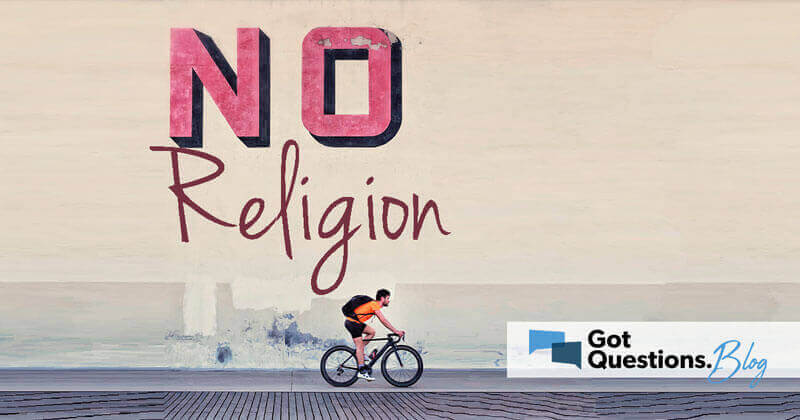
No religion?
People are increasingly describing themselves as having “no religion.” This is especially true among younger generations. Why is this? What is the cause, and what are the implications?
Interestingly, in many polls, when respondents give “no religion” as their response, close to 70% indicate they believe in the existence of God. Further, over 30% describe themselves as “spiritual” instead of “religious.” Why would so many people who claim “no religion” still believe in God? Why would they prefer “spiritual” as a label instead of “religious”?
A generic definition of religion might be “belief in and worship of a God or gods, usually expressed in conduct and ritual.” So, if “belief in God” is not the issue for a significant majority of the “no religion” respondents, the problem must be with “expressed in conduct and ritual.” Essentially what these people may be saying is, “Yes, I believe in God, but I don’t want anyone telling me what my relationship with God or spiritual journey is supposed to be like.”
This is nothing new. The only thing that has changed is that more people are willing to admit it. We human beings are inherently stubborn, arrogant, and self-obsessed. We do not want anyone telling us what we should and should not do—not even God. We acknowledge God's existence, but seek to deny Him any influence in our lives. We avoid the “rituals” He commands in the Bible because they might be inconvenient. We do not want to go to church, study the Bible, minister to the poor, or give financially to God-honoring causes. For those with “no religion,” perhaps they say “no” because religion might actually impact how they live their lives. Belief in God and an active spirituality are core aspects of religion. Most people do not truly have “no religion.” Rather, they are opposed to any “religion” that inconveniences them.
Countless times, I have heard people say something to the effect of “I am very spiritual. I pray. I worship God in nature. I try to be compassionate to people. I don’t need the Bible or church.” But, they have no idea who God really is, what salvation in Jesus Christ is really all about, who the Holy Spirit is, or to whom they are praying. How can they even know what worship is or have the right motivation for being compassionate when they have no one and nothing instructing them on how to relate to the God in whom they claim to believe?
Essentially, to claim to believe in God but have “no religion” is to advocate “fast food religion.” Just as we are used to customizing our food orders exactly the way we want them, we are doing the same thing in our relationship with God. What “no religion” claimants are truly saying is that they want salvation without commitment, spirituality without truth, and relationship without accountability. Essentially, they are ordering a burger with no bun, meat, cheese, lettuce, tomatoes, pickles, onions, ketchup, mustard, or mayo. Yep, just an empty box.
S. Michael Houdmann
GotQuestions.blog homepage
No religion?